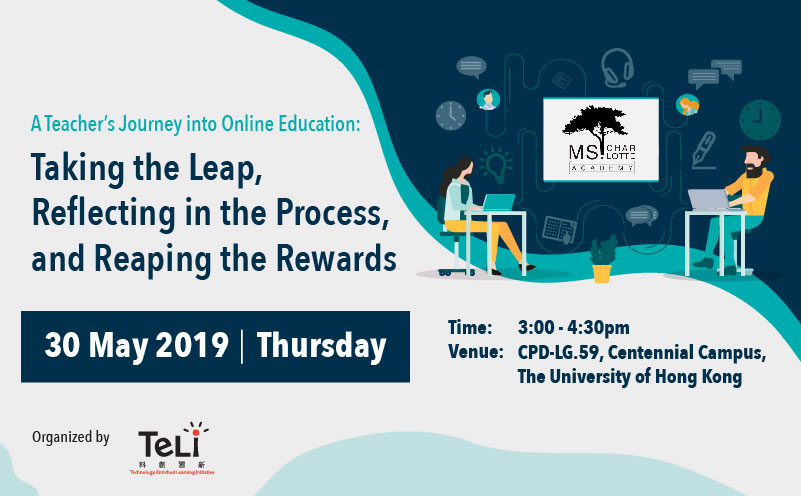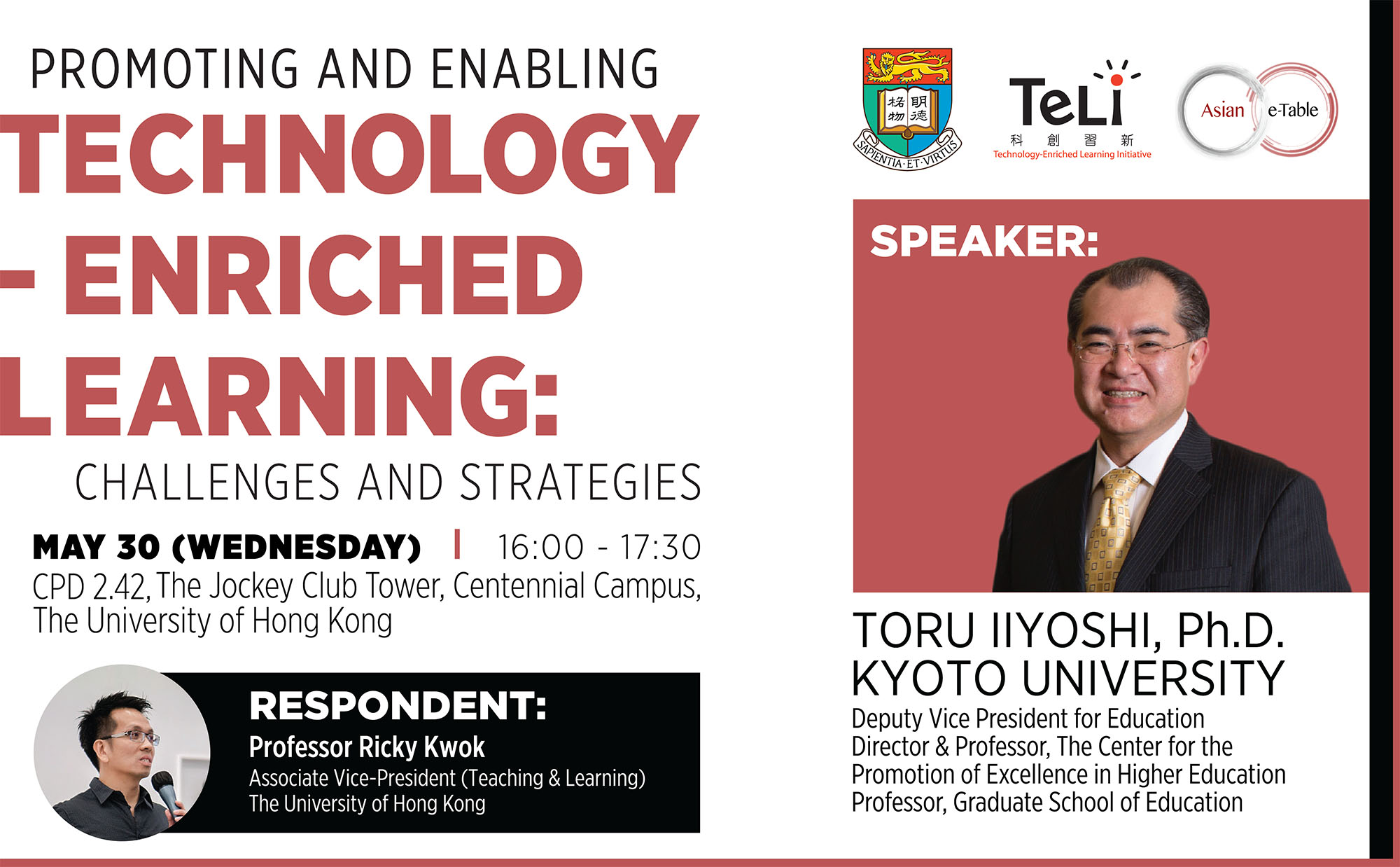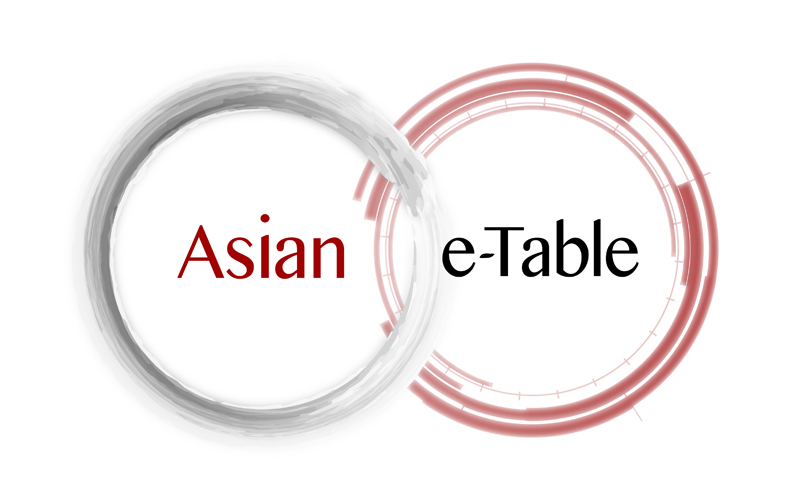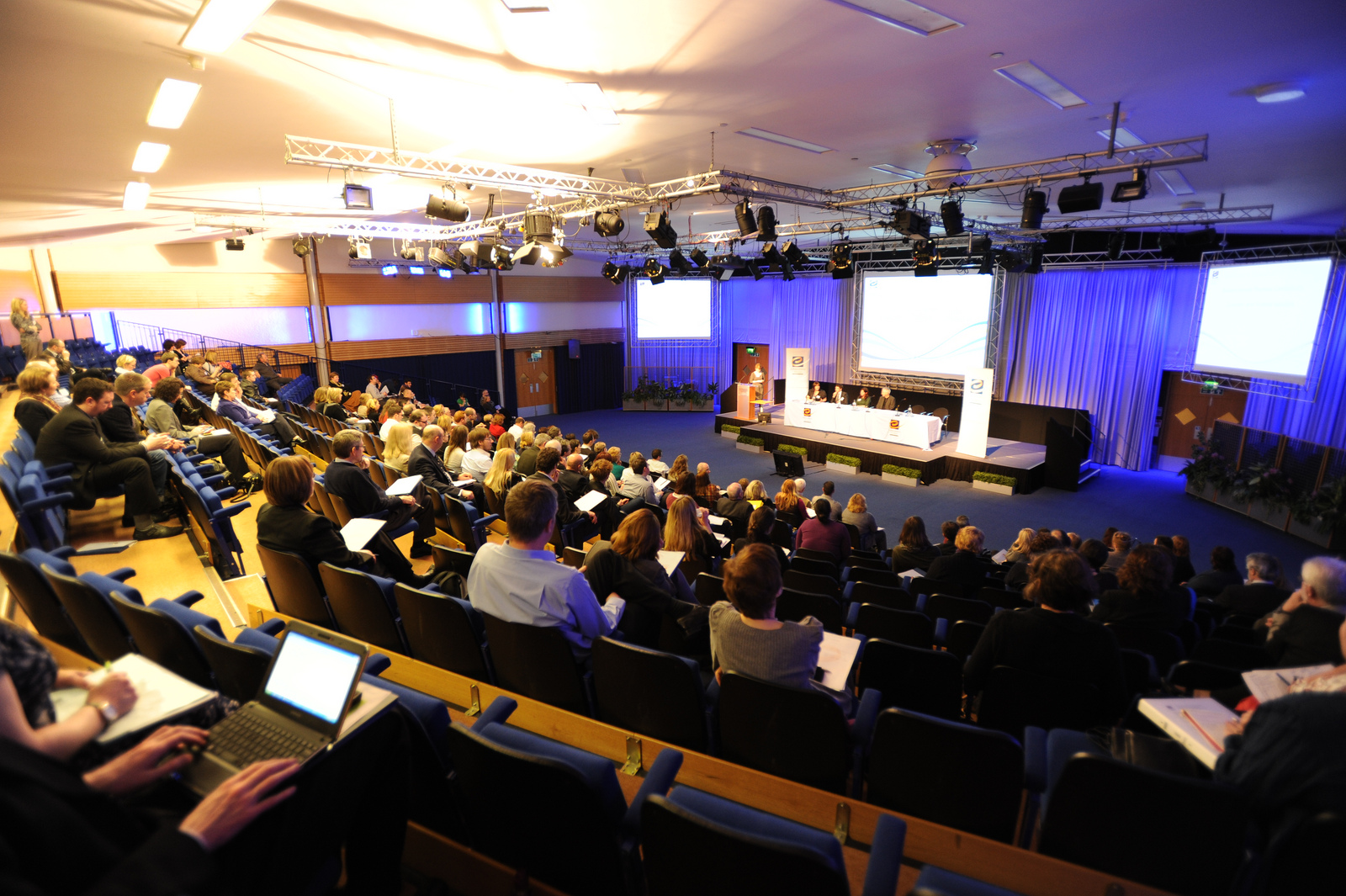 This is an event organized by Technology-Enriched Learning Initiative (TELI).
This is an event organized by Technology-Enriched Learning Initiative (TELI).
Details of the event:
Time : 3:00pm – 4:30pm
Venue : CPD-LG.59, Centennial Campus, The University of Hong Kong
Speaker : Ms Charlotte Chang, e-Teacher-in-Residence, The University of Hong Kong
Respondent : Professor Ricky Kwok, Associate Vice-President (Teaching and Learning), The University of Hong Kong
Abstract
To teachers who are used to the setting and dynamics of a classroom, getting started in online education might seem daunting. After all, creating online courses involves adapting and rewriting course content, reenacting lessons on camera, and reorganizing class structures to enable student interactions in a completely different context—or, in other words, nothing short of overhauling traditional modes of teaching in large part. All this effort, however, is not only manageable with the right support, but also immensely rewarding for any teacher—practically, pedagogically, and intellectually.
In this seminar, Charlotte Chang, TELI’s e-Teacher-in-Residence, will use her own journey into online education as a starting point to reflect on the obvious and not-so-obvious (often even counter-intuitive) opportunities that await teachers who undertake a similar endeavor.
In the first part of the talk, “Taking the Leap”, Charlotte will reflect on the intellectual impulses and practical considerations that led her to create an online course. What ultimately convinced her that this daunting task would be worthwhile?
In the second part, “Reflecting in the Process”, Charlotte will share insights on the many opportunities for professional and intellectual growth that she found, often unexpectedly, throughout the course creation process. In optimizing and refining content and pedagogy for the course, she was motivated to strive for nothing less than the “best of her teaching”. An online course, ultimately, should not just be a repackaging of existing courses in a virtual format; rather, it is an opportunity for the educator to enhance and enrich existing curricula, teaching materials, pedagogical approaches, and student engagement.
In the final part of the talk, “Reaping the Rewards”, Charlotte will elaborate on the benefits of online education that classroom teaching cannot offer. Apart from practical rewards like eliminating the time spent on repeating core content, online education offers many less obvious, perhaps even counter-intuitive benefits to teaching and learning, such as deepening interactions with students with a wide range of learning styles and abilities.
Charlotte’s reflections on her journey as an online teacher should resonate with fellow educators from diverse academic fields who wish to embark on their own explorations of online education and the immense opportunities that it promises.
About the Speaker
Charlotte Chang, TELI’s “e-Teacher-in-Residence” in 2018-19, founded the online English education platform Ms. Charlotte Academy in 2017. After a year of writing a curriculum, developing materials, and filming and editing lessons, Charlotte launched her online course “Core Concepts of English” in late 2018. In the course, which currently enrolls over 200 students, Charlotte uses an analytical framework based in linguistics concepts to teach Hong Kong adults the unchanging rules of English syntax, introducing students to a systematic, structure-based approach to understanding how English works and how it differs from Cantonese/Chinese.
Charlotte’s core belief as a language teacher is that every student with basic analytical skills can gain a “big picture” perspective of how any language works, even if it is as different to their native language as English is to Chinese. Online education, which enables students to absorb and internalize new knowledge at their own pace, is a fitting format that facilitates this type of analytical teaching and learning.
Prior to her career in online education, Charlotte graduated from Harvard University in 2012 and worked as a secondary school teacher from 2012 to 2014. From 2014 to 2017, she experimented with and refined her linguistics-based approach to teaching English before finally writing her own curriculum. Her transformation from “traditional” to “online” teacher gave her much insight into the many benefits that technology can offer education, both in facilitating teaching and enhancing learning.
Enquiries should be directed to enquiry@teli.hku.hk.






